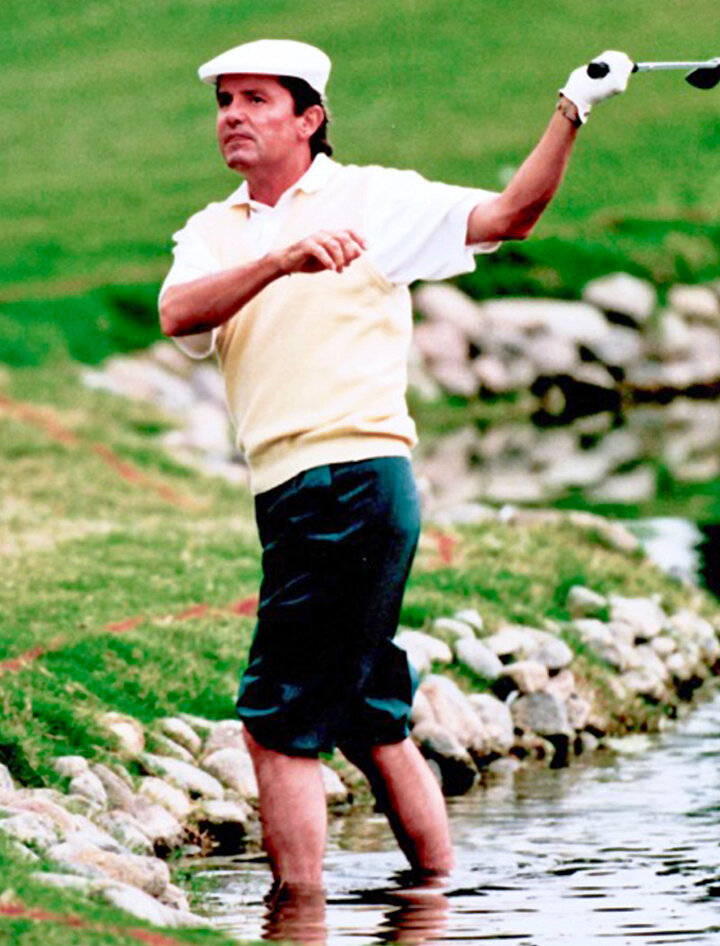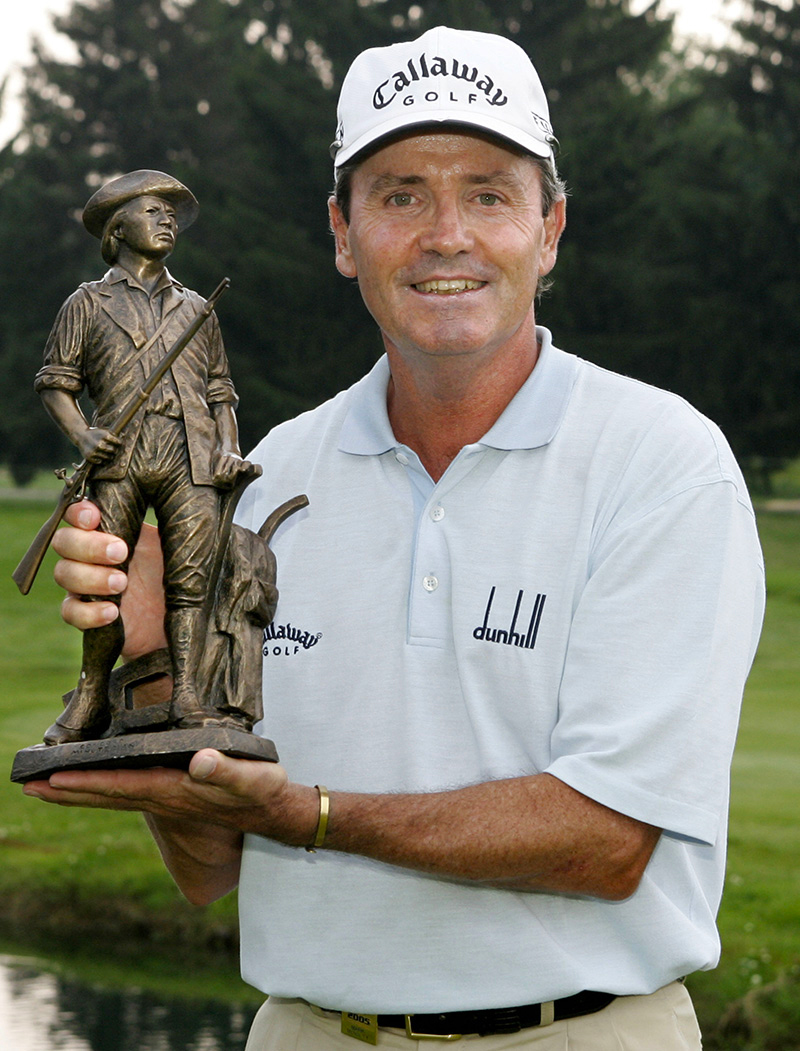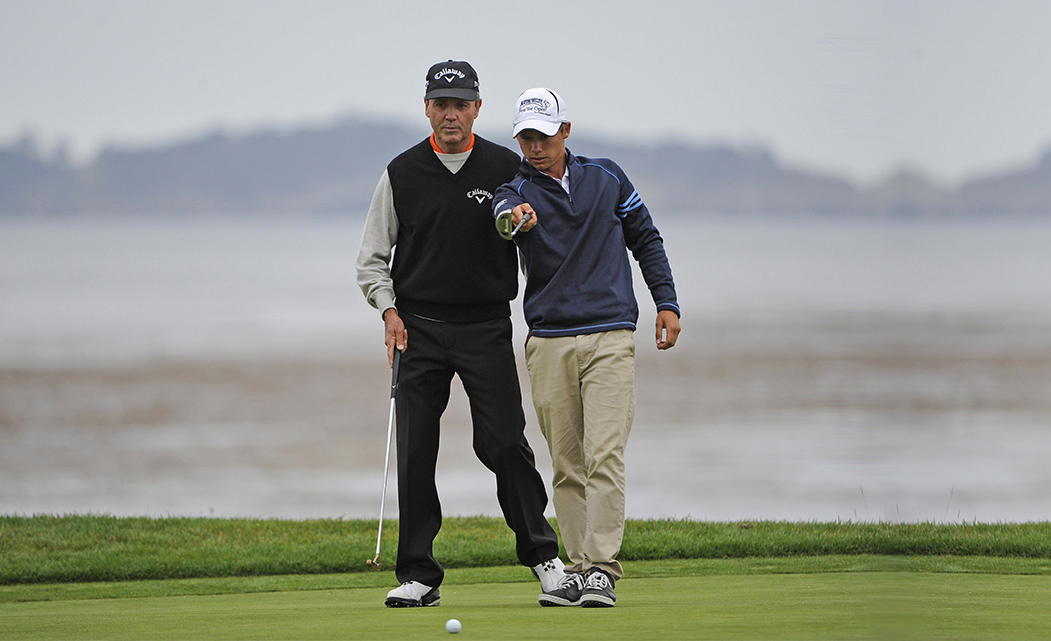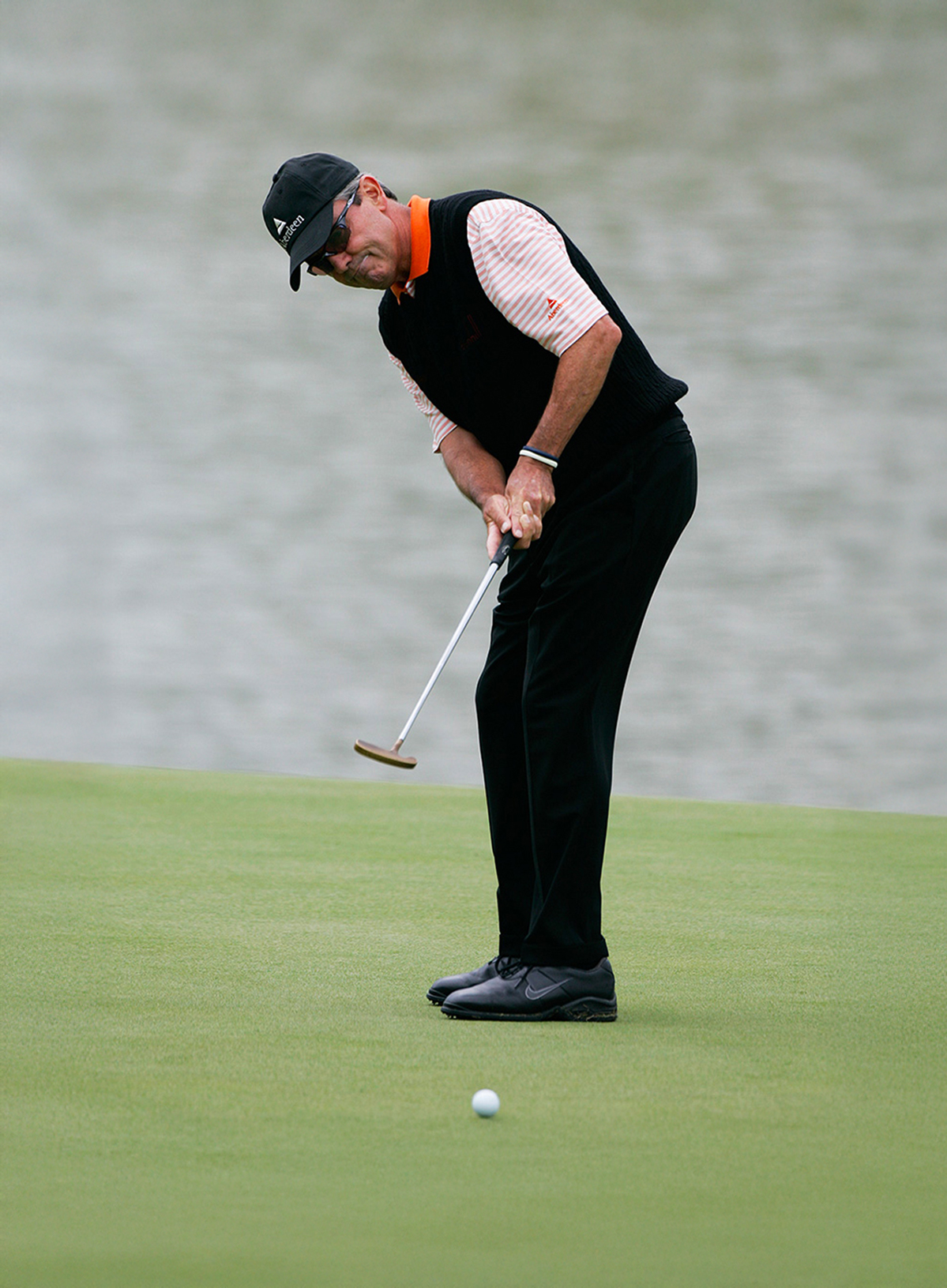
WHERE ARE THEY NOW?
Mark
MCNULTY
The next in our series where we catch up with South African golfers who made their name on the professional tours
BY MIKE GREEN
Ask anyone who played with him, and they will tell you he was the best putter they ever saw.
Mark McNulty would go with a bag of balls, find the longest putt available, and putt balls for hours on end. His approach stimulated a sense for break, speed and feel. 'It sounds so simple, but it's really just a case of putting a good roll on the ball – the right spin if you like,' he says. 'You can't expect to hole every putt. But when you're rolling it right, you'll make your fair share of putts and when they go in, they kind of just dive in.
'Guys who have putted well through the ages are born with it. You have times when you go through poor putting rounds, but it always comes back because you have it. It's inside.'
As much as it came from his putting, his success also came from his exceptional short game, along with a consistently repeatable swing and a calm, resilient mindset under pressure.
With those skills, he won 59 times around the world and he reached as high as number six on the official rankings of golf worldwide in October 1987.


AS A PLAYER
Spent 30 consecutive weeks in the world's top 10 after breaking in at No 10 on 28 October 1990. He hit a career high No 6 on 17 March 1991
Won 59 times as a professional and represented Rhodesia as an amateur and Zimbabwe, South Africa and Ireland as a pro
Was winner of the Sunshine Tour Order of Merit eight times and 33 times a winner on the tour
His best finish in a regular Major was T2nd with Payne Stewart behind winner Nick Faldo at the 1990 Open Championship at St Andrews
Was a winner of one Senior Major – the 2007 Tradition when he beat David Edwards by five strokes
Won 16 times on the European Tour between 1979 and 2001
'When you're playing well, you love the game, and when you're not playing well, you want to put the clubs in the closet'
McNulty had a repeatable and well-balanced golf swing, which allowed for consistent shot-making under pressure.
His ability to handle pressure was a trademark of his career. Even after he had moved on from the regular tours, during a final-round charge at the 2017 SA Senior Open, for example, he responded to pressure with clutch birdies to secure the win.
He also demonstrated resilience after a battle with arthritis required a knee replacement in 2010. He returned to competition and continued to perform at a high level. Before that, in November 1981, he received serious facial and neck injuries when his car collided at high speed with a bus near his parents' farm in Zimbabwe, on his way to the ICL International in Johannesburg. Despite his injuries, McNulty played in the 1981 South African Open the following month and won a tournament in Durban in January 1982, eight weeks after the accident.
Nowadays, he finds himself at home at San Lameer in KwaZulu-Natal for much of his time after he became an Irish citizen in 2003. It's there that his charitable initiative, the Mark McNulty Junior Golf Foundation, is based.

'It has always been a goal of mine to be able to give a little back to our wonderful game of golf,' he says. 'I feel as if the best way to give back is to do that with our young. Forming the Foundation has always been a dream of mine. Not only does it provide a way of giving back to the game I love, I can share this love with the youth.
'While I am still able, I am still playing. It's a bit of a love/hate relationship. When you're playing well, you love the Dickens out of the game, and when you're not playing well, you want to put the clubs in the closet and say, "Go to sleep boys."
So now he focuses on instruction: Teaching juniors how to play the game and understand its rules and etiquette; upliftment, by identifying juniors who show natural ability and giving them extra support; and by development off the course as well as on it. The Foundation aims to instil life values in its members, aligned with the core tenets of the US programme The First Tee, which include honesty, integrity, sportsmanship, confidence, and respect, amongst others.
It's those tenets that make him feel uncomfortable about modern developments in the game: 'I'm not sure I could play with loud music being played on tees,' he says, 'and I feel that many of the players who made the jump to a different format have not done themselves any favours that aren't simply financial.

And, I might be completely wrong about this, but I think LIV Golf is dying slowly. They can't draw the players to replace their aged-out stars who they initially brought over, and they have fans that mirror the kind of behaviour we saw at the Ryder Cup this year. Without the early support that traditional golf gives, I can't see long-term success.'
He knows the value of early support from his own history with the game. McNulty was born in Bindura, in what was then Southern Rhodesia. He was raised on a farm in the Centenary area of Zimbabwe. When McNulty was a year old, his natural father was killed in a shooting accident. His step-father was an amateur pilot who had an airstrip on the farm. When his step-father was diagnosed with epilepsy, he was forced to give up flying. He converted the airstrip into a three-hole golf course, where Mark first learned to play golf.
Now he looks at the game and knows that what he sees means he can contribute to the growth of the game.

'Certainly, when I first came on tour in 1977, cuts were four- or five-over-par' he recalls. 'The winning score seems to stay the same, but they bunch up much more which says that everyone is playing better and working harder, which is what it's all about.
'The thing I like is that if I'm a seven- or eight-handicap, I can still compete against a one- or two-handicapper or scratch golfer. At every level, there's competition but ultimately there's competition mostly with yourself to try to get better.
'I don't do a thousand sit-ups a day, but I pride myself on having kept myself in good shape. I can do maybe 50 a day, and I'm at the stage of my life where I'm facing what every golfer my age faces.
'So I spend more time than I used to here in San Lameer – I used to play 10 months a year and rest here for two, and now it's the other way round. And, like everything else, it's about being the best I can under the circumstances.'
And there were not many better than he was – and is.

